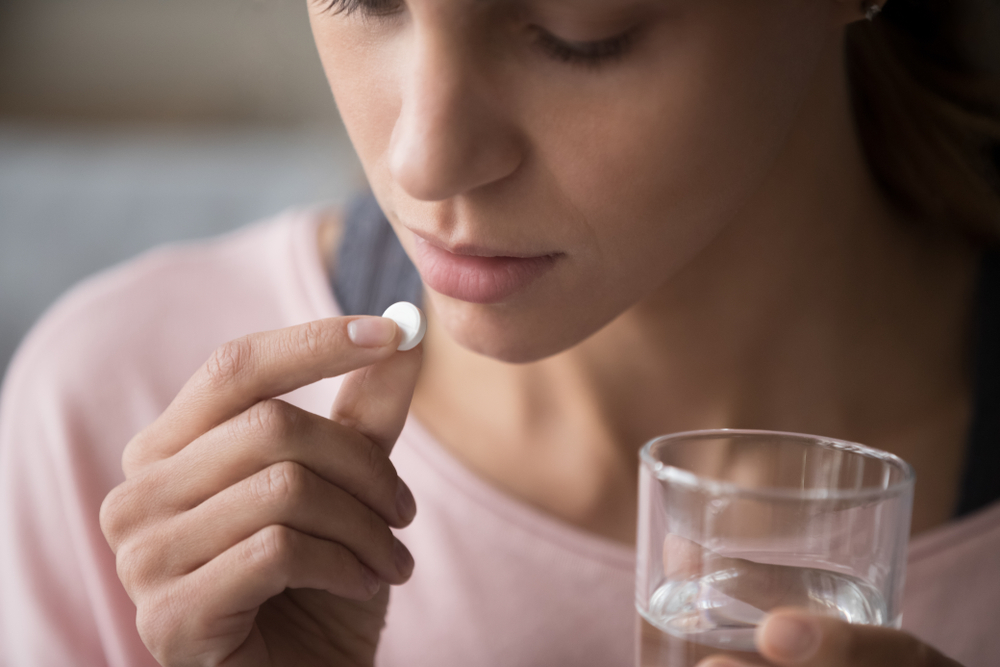Last Updated:
May 16th, 2025
Antidepressants Abuse | Signs, Effects and Causes
What are antidepressants?
Antidepressants are medications designed to help manage the symptoms of depression and other mental health conditions. They work by balancing chemicals in the brain, such as serotonin and norepinephrine, which play a key role in mood regulation. While their primary purpose is to treat depression, they’re also commonly prescribed for:
- Anxiety disorders
- Obsessive-compulsive disorder (OCD)
- Post-traumatic stress disorder (PTSD)
- Chronic pain
Antidepressants aren’t a quick fix but can provide significant relief when paired with therapy or other treatments.

Are there different types of antidepressants?
There are several types of antidepressants, each working in different ways to manage symptoms of depression and other conditions. Here’s a closer look at the main types that are commonly prescribed today, along with other types that aren’t used as frequently as once were:
Here’s the updated table with the same level of detail and adjusted titles:
| Type | Description |
Example names |
| Selective serotonin reuptake inhibitors (SSRIs) | SSRIs are the most commonly prescribed antidepressants. They work by increasing serotonin levels in the brain, a chemical linked to mood regulation. | Sertraline, fluoxetine, citalopram |
| Serotonin-norepinephrine reuptake inhibitors (SNRIs) | SNRIs target both serotonin and norepinephrine, another neurotransmitter involved in mood and stress responses. | Venlafaxine, duloxetine |
| Tricyclic antidepressants (TCAs) | One of the older classes of antidepressants, TCAs like amitriptyline and nortriptyline work on multiple neurotransmitters. They can be effective but often come with more side effects, so they’re usually prescribed when newer medications aren’t suitable. | Amitriptyline, nortriptyline |
| Monoamine oxidase inhibitors (MAOIs) | MAOIs, such as phenelzine, block an enzyme that breaks down serotonin, norepinephrine and dopamine. While effective, they require dietary restrictions and are less commonly used today. | Phenelzine, tranylcypromine |
| Atypical antidepressants | This group includes medications that don’t fit neatly into other categories. Examples like mirtazapine or bupropion target unique brain pathways, offering options for those who don’t respond to SSRIs or SNRIs. | Mirtazapine, bupropion |
Can antidepressants be addictive?
Antidepressants aren’t addictive in the same way as harder drugs like opioids or stimulants, as they don’t produce intense cravings or a euphoric ‘high’. However, if taken for a long time, stopping them suddenly can lead to withdrawal symptoms. This is known as antidepressant withdrawal syndrome. While not everyone experiences it, approximately 20% of people who take antidepressants for a significant period may develop it, making it important to understand what it is and why it occurs.
What is antidepressant withdrawal syndrome?
When the brain becomes used to the presence of antidepressants, stopping them abruptly can disrupt the balance of chemicals they regulate. This adjustment can cause uncomfortable withdrawal symptoms, especially if the medication is stopped suddenly instead of gradually.
Possible symptoms include:
- Flu-like symptoms (nausea, headaches, sweating)
- Insomnia or vivid dreams
- Anxiety or restlessness
- Mood swings or irritability
- Dizziness or ‘brain zaps’ (a tingling or zapping sensation in the head)
- Fatigue or low energy
To reduce the chances of withdrawal, it’s essential to taper off antidepressants slowly under medical guidance.
Psychological dependence
Antidepressants aren’t chemically addictive but they can sometimes lead to psychological dependence.
For example, if someone has experienced severe depression and finally found relief with antidepressants, they may feel anxious about stopping them, fearing their symptoms might return. This worry or apprehension might make them reluctant to complete their course, even if their doctor advises it’s time.
Do I have an antidepressant addiction?
It can be difficult to determine if you have an antidepressant addiction, especially when they’ve brought so much benefit to your life. The thought of whether or not you’re ready to come off them might feel far from your mind.
Below are a few questions to reflect on, particularly if you’ve ever tried to stop taking antidepressants and found it challenging:
- Have you experienced withdrawal symptoms like anxiety, insomnia or mood swings when trying to taper off?
- Do you feel a strong emotional need to keep taking them, even when advised to stop?
- Are you hesitant to discuss ending your course with your doctor due to fear of your symptoms returning?
- Have you ever taken more than the prescribed dose to maintain their effects?
- Do you feel anxious or distressed at the thought of running out of your prescription?

Answering “yes” to any of these questions might indicate a deeper reliance on antidepressants. Seeking professional support can help you explore these feelings and determine the best path forward.
Can an antidepressant addiction be treated at rehab?
When most people think of rehab, they associate it with hard drugs like cocaine or heroin. However, there are specialised programmes designed to support those struggling with antidepressant-related issues. These programmes provide a safe and supportive environment for tapering off antidepressants when it’s time to finish the course. They also offer therapy to address concerns about symptoms returning after discontinuation.
Antidepressant rehab is an ideal place to ease into life without medication, offering professional support to make the transition smoother and less overwhelming.
How therapies can help
Therapy plays a vital role in addressing emotional and psychological challenges related to stopping antidepressants. Some therapies that can help include:
- Cognitive behavioural therapy (CBT): Helps identify and manage negative thought patterns, providing tools to cope with potential triggers or low moods.
- Dialectical behaviour therapy (DBT): Teaches emotional regulation and mindfulness, useful for managing anxiety about life without antidepressants.
- One-to-one counselling: Provides a space to express fears and work through concerns about relapse or returning symptoms.
- Holistic therapies: Activities like yoga, art therapy or meditation promote relaxation, helping to reduce stress during this transition.
- Group therapy: Connects you with others on a similar journey, fostering understanding and mutual encouragement.
A rehab programme offers not only physical support for tapering off but also emotional and psychological care, giving you the perfect foundation for life beyond antidepressants.
What’s next?
If you’re worried about your relationship with antidepressants or feel uncertain about how to stop taking them, seeking help at a rehab centre could be the best step forward. You don’t have to face this journey alone, as professional support is here to help you address any concerns about life after antidepressants. Reach out today to start building a brighter, more confident future.
Our compassionate team are ready and available to take your call, and guide you towards lasting the lasting addiction recovery you deserve.
Frequently Asked Questions
(Click here to see works cited)
- Gabriel M, Sharma V. Antidepressant discontinuation syndrome. CMAJ. 2017 May 29;189(21):E747. doi: 10.1503/cmaj.160991. PMID: 28554948; PMCID: PMC5449237.

